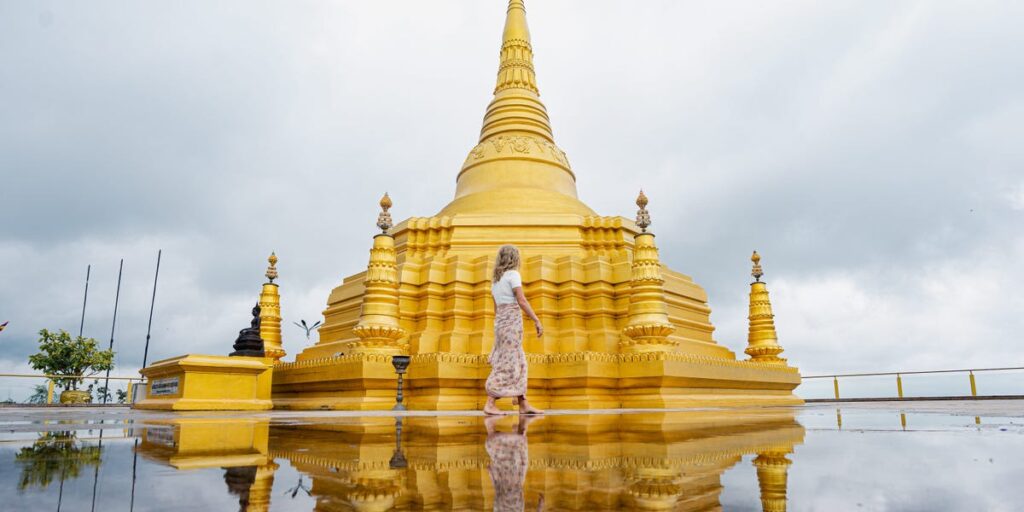Imagine a tropical island with unspoiled beaches. Towering palm trees dot the shore, and ornate Hindu and Buddhist temples beckon you inward.
You can embark on a jeep safari to spot big game and, on the same day, lay down a towel on white-sand beaches and bask in the sun.
This is Sri Lanka, a tiny island nation alone in the Indian Ocean that looks like a tear falling from continental India. But although Sri Lanka is called India’s teardrop, I think it’s really its gem.
The country is emerging out of a dark past with political turmoil and economic crises, and its tourism industry is just taking off. In December, Sri Lanka recorded more than a million tourist arrivals — the first time over a million arrivals have been recorded there in four years.
In my seven years of traveling to 60 countries — including most countries in Southeast Asia — I have rarely been anywhere as wild and diverse as Sri Lanka. Here, you can see beaches, jungles, and mountains in a small space.
Like Bali, Sri Lanka is a tropical island with rainforests, beaches, thieving monkeys, sacred Hindu and Buddhist temples, vibrant surfing communities, and roads with more motorcycles than cars.
But above all, it hasn’t been harmed by overtourism the way Bali has.
There’s a lot to do in Sri Lanka
One of the main advantages of Sri Lanka is its size.
Although the country is smaller than New York state, it packs a diversity of environments, cultures, and activities into one place.
Within this small strip of land, there are trendy surfing villages that host famed competitions, sacred mountain towns with glittering golden temples, historic tea plantations, ancient ruins of forgotten empires, safari camps, and tropical beaches with calm waters and cocktail bars.
Because of its size, Sri Lanka is also relatively easy to get around. You can ride colonial-era trains through the heart of the country or rent a motorbike and drive yourself around.
The local buses are also useful, but they can get a bit packed with people and are not the most comfortable, in my experience. However, a scenic, five-hour bus journey will only cost you between $3 and $6, and it’s quite an adventure.
The wildlife is also incredible
In my opinion, the best thing about Sri Lanka is its incredibly diverse ecosystems, which offer great opportunities for wildlife watching.
Its national parks are teeming with wildlife, and its safaris are similar to those available in sub-Saharan Africa but at a fraction of the price.
On these safaris, you can climb into a jeep at sunrise and race over bumpy dirt roads through dry grasslands to spot elephants, leopards, water buffalo, sloth bears, crocodiles, and rare birds.
If you’re more of an ocean person, you can swim with black-tip reef sharks, snorkel with dolphins, and go whale watching in Trincomalee.
If you prefer jungles, there’s even a tropical rainforest — Sinharaja — where endangered species of monkeys and giant squirrels leap through the forest canopy.
For history and culture buffs, Sri Lanka is also a must-visit country
Sri Lanka is also rich in history and culture. Formerly known as Ceylon, Sri Lanka was once home to the Kingdom of Kandy until it was taken over by the British in the 1800s.
You can view the relics of that empire in the country’s many national museums. Historic Portuguese, Dutch, and British forts also line the coastline from the different periods of colonization.
But if food is more your cultural interest, don’t worry — Sri Lanka has got you covered. The traditional dinner consists of four types of curries and a giant serving of rice in a pile that you can dig into with your hands. And it always comes with a side of coconut sambol, grated coconut mixed with chopped chiles.
During my travels, I’ve also met some of the kindest, most hospitable people in Sri Lanka. It’s truly a special place, and I recommend checking it out.
Read the full article here
















